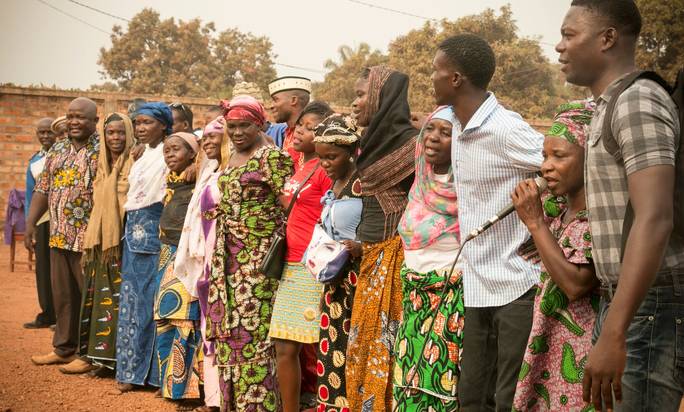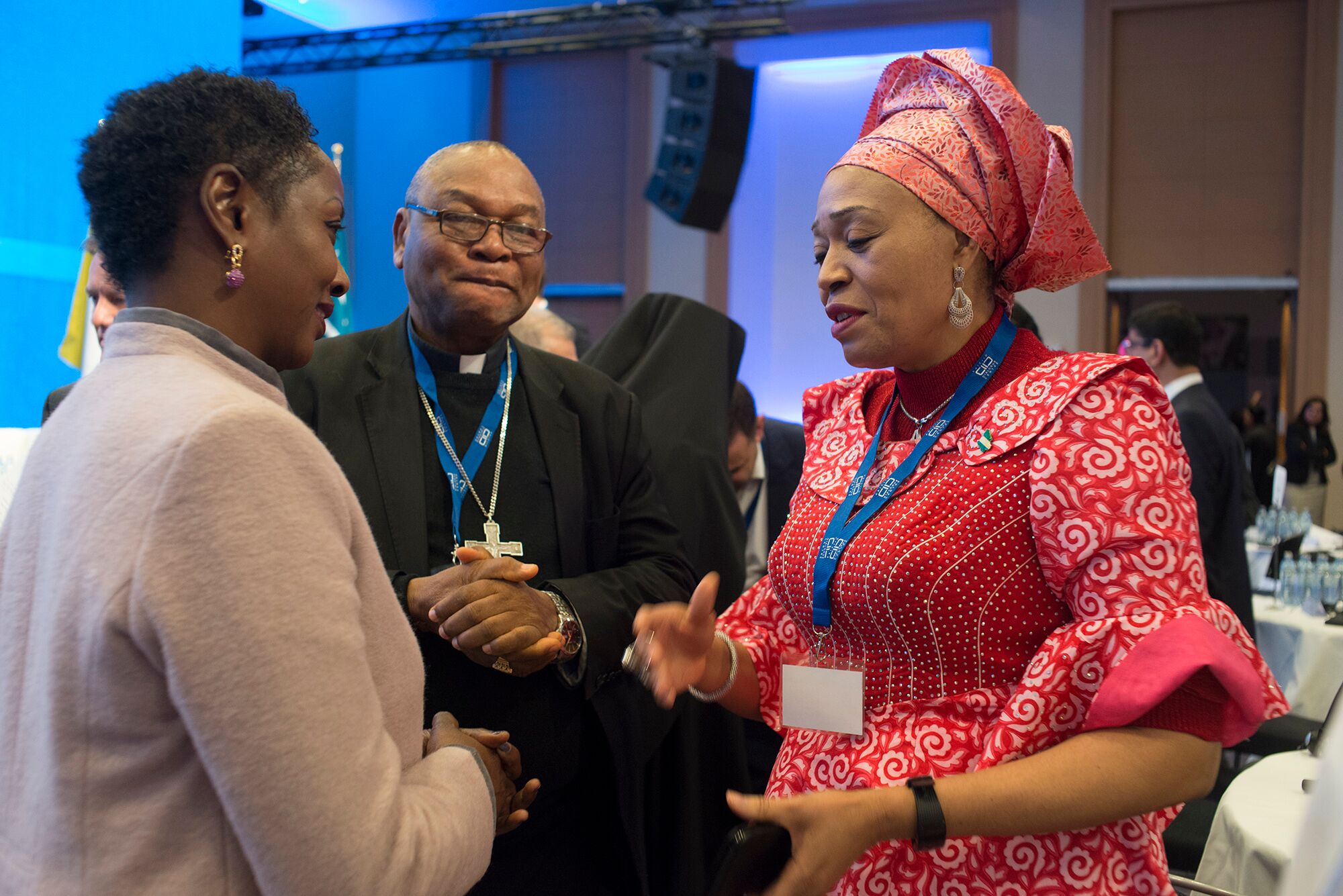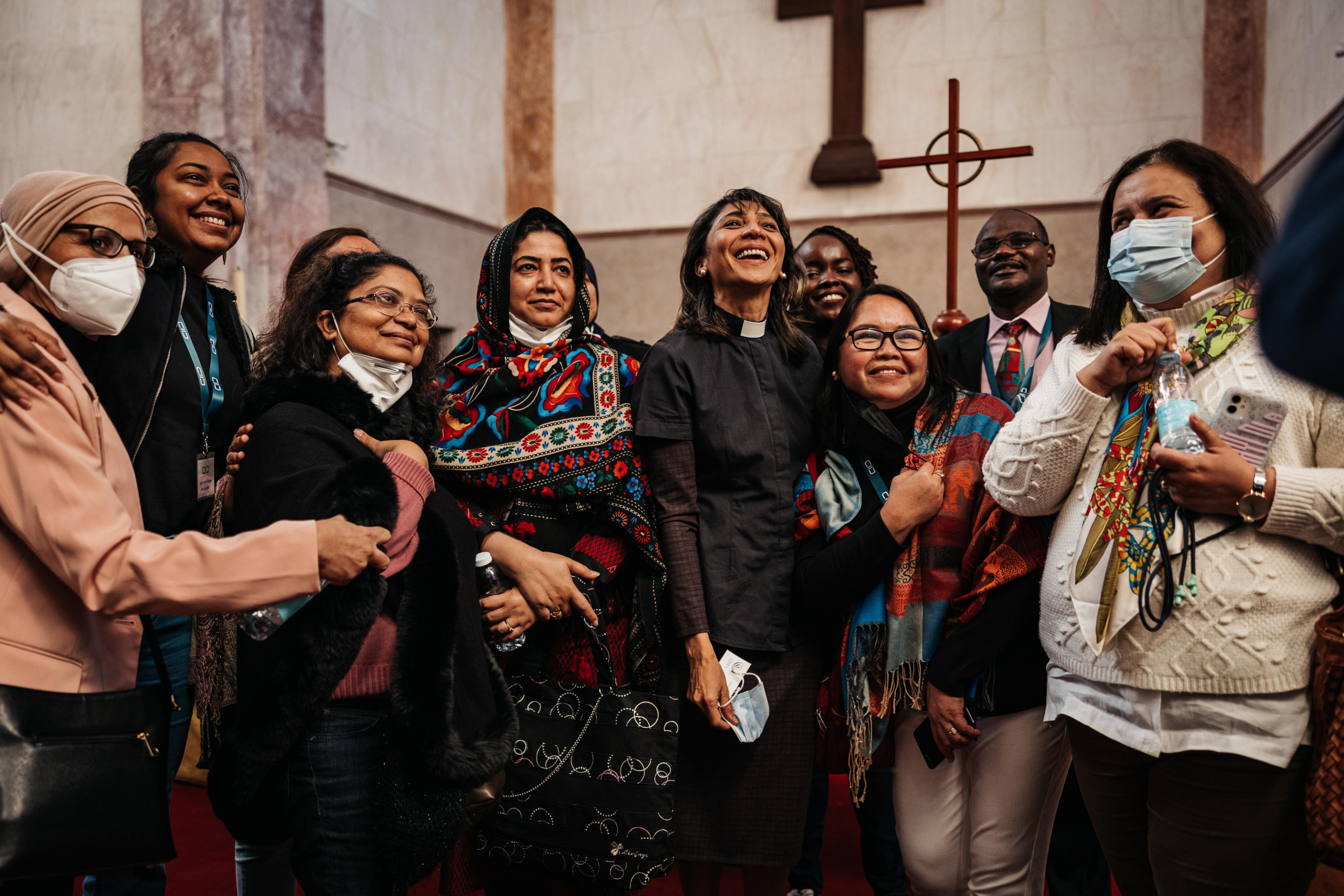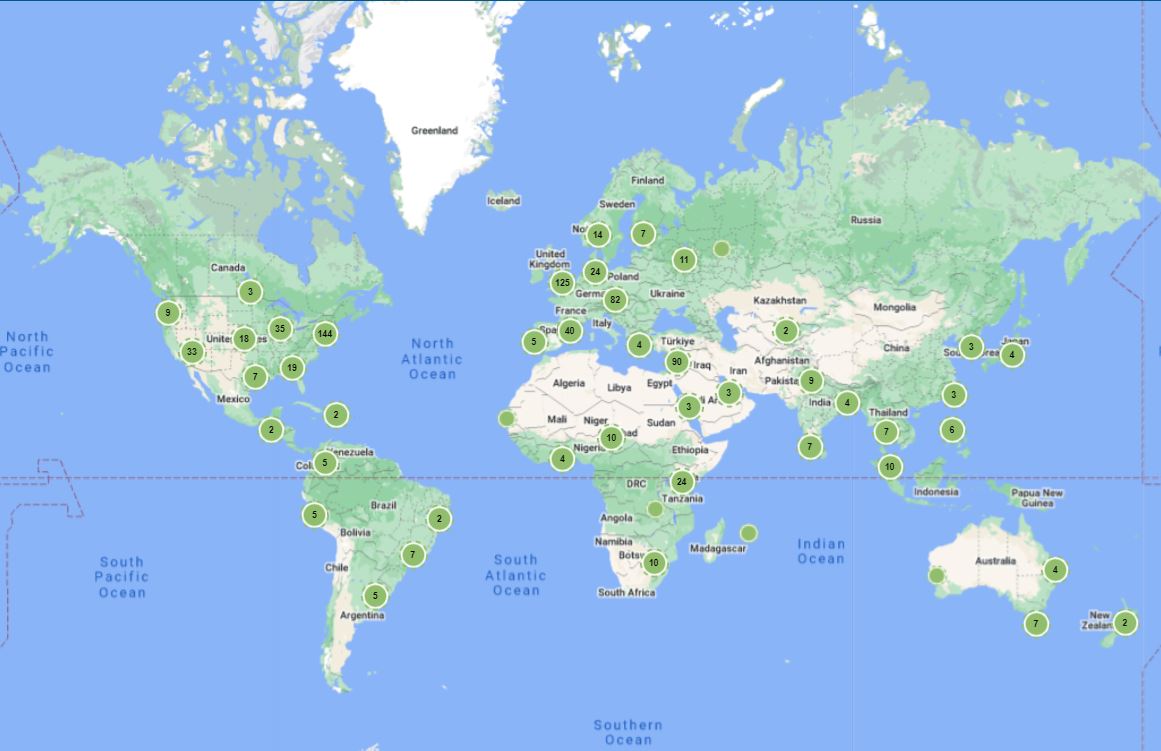Promising Practices
Promising Practices is a collation and expansion of existing documentation on promising practices in interreligious dialogue. Our database offers guidelines and focuses on the concrete implementation of interreligious and intercultural dialogue practices around the world.

Disclaimer:
Through providing different aspects and ideas our aim is to compliment the great work that has been already done in the field of Interreligious and Intercultural Dialogue. Information and field data published in this resource are for informational purposes only, and neither KAICIID nor the Dialogue Knowledge Hub guarantee in any way success of the implementation of the activity.
While we wish all the activities and initiatives featured in this resource could be replicable in as many context around the world as possible, there are often certain limitations, such as the suitability for particular cultures or religious communities. However, there is always room to explore and adjust activities in regards to the community’s environment.
- Global
- New Zealand
- UK
- Advocacy
- Confessional / Religious / Spiritual Activities
- Democracy
- Environment
- Freedom of Expression
- Human Security
- Intercultural Dialogue
- Interreligious Dialogue
- Intrareligious Dialogue
- Peace
- Pluralism
- Shared Human Values
- Social Cohesion & Citizenship
- Social Work & Community Service
- Multireligious
- None
Social Leadership
“Active Citizens” is a social leadership programme launched by the British Council that promotes intercultural dialogue and social responsibility around the world. Through its programme, Active Citizens brings together people with different beliefs and perspectives to learn from and share their experiences with each other. They train participants in the skills and knowledge needed to affect social change in their communities.
- Mexico
- Morocco
- Advocacy
- Capacity Building & Empowerment
- Democracy
- Freedom of Expression
- Freedom of Religion and Belief
- Information Distribution
- Intercultural Dialogue
- Interreligious Dialogue
- Networking
- Peace
- Pluralism
- Shared Human Values
- Social Cohesion & Citizenship
- Women's Rights
- Islam
- Judaism
- Multireligious
Women Empowerment
Women are vital actors of society, and must be empowered to foster equality, dialogue, and peaceful coexistence. Women empowerment can take the shape of different practices and activities such as exhibitions or workshops. Exhibitions of women’s portraits can transcend religious differences, and empower women to share their narratives and experiences through pictures, thus focusing on the vital role they play in their communities. Exhibitions can be organized as a one-time event where it is initially organized, or can become a traveling exhibition, either within the initial country or from one country to another.
Moreover, in the religious sphere, women rarely have a leading role. The initiative “Women of Faith” gives women the opportunity to shine and lead in spaces where they are often marginalized. This initiative wishes to empower women to share their experiences and their perception on what their role is in modern religious communities.
- Guatemala
- Advocacy
- Democracy
- Freedom of Expression
- Freedom of Religion and Belief
- Information Distribution
- Intercultural Dialogue
- Interreligious Dialogue
- Networking
- Peace
- Pluralism
- Shared Human Values
- Social Cohesion & Citizenship
- Multireligious
Interfaith Radio
This practice is excellent for individuals or organizations working in a radio station or who wish to launch their own. “Radio for Peace” is an inclusive model of a radio channel that addresses social issues and matters of cohesion between different interreligious or intercultural groups, such as indigenous and non-indigenous people. The radio can focus on different topics such as interfaith, intercultural or intergenerational problems in society.
- Laos
- Peru
- Tanzania
- Advocacy
- Capacity Building & Empowerment
- Confessional / Religious / Spiritual Activities
- Democracy
- Educational Programmes
- Freedom of Expression
- Freedom of Religion and Belief
- HIV
- Human Security
- Intercultural Dialogue
- Interreligious Dialogue
- Intrareligious Dialogue
- Networking
- Peace
- Pluralism
- Shared Human Values
- Social Cohesion & Citizenship
- Social Work & Community Service
- Women's Rights
- Youth
- Buddhism
- Multireligious
Interfaith Support for HIV Patients
People affected by HIV have to face prejudice and stereotypes and tend to be isolated from the community, especially in religious contexts. Interfaith communities can be mobilized to unite and tackle the issue of HIV, and support patients, therefore including them in their communities, breaking stereotypes, and fostering coexistence. Different religious communities or interfaith groups can work on a solidarity program with a specialized organization, to show solidarity with affected patients.
Support for HIV patients can take the form of a video project that breaks stereotypes around those the virus. It shows people of different backgrounds dealing with the virus, their hardships and the social pain they go through. Sharing different narratives proves how anyone can be affected by HIV and challenges the stigma around it.
A theatre group can also engage people of different religious backgrounds and affected by HIV to raise awareness of their reality through theatre. The aim is to raise awareness of HIV within religious communities, to create safe spaces for affected individuals.
- Guatemala
- Rwanda
- South Africa
- Sri Lanka
- Advocacy
- Capacity Building & Empowerment
- Confessional / Religious / Spiritual Activities
- Democracy
- Diplomacy
- Educational Programmes
- Freedom of Religion and Belief
- Human Security
- Humanitarian Aid
- Intercultural Dialogue
- Interreligious Dialogue
- Intrareligious Dialogue
- Networking
- Peace
- Pluralism
- Shared Human Values
- Social Cohesion & Citizenship
- Social Work & Community Service
- Youth
- Buddhism
- Islam
- Multireligious
Interfaith Conflict Mediation
Interfaith conflict mediation can take different forms, from democratic empowerment in post-conflict environments, to material exchanges and dialogue to reconcile. When a conflict arises between two protagonists that have cultural and religious differences, mediation has to be fair and objective; it should not favor one over the other. Intercultural Conflict mediation ensures that each perspective and belief are taken into account in the mediation process.
The Interfaith Democratic Empowerment is a program put in place by the religious leaders of a given country. They organize constitution reading workshops, debates, give their communities the judicial and advocacy tools to be active citizens in democracy building.
Interfaith material exchanges help establish a dialogue when it is hard for people to have verbal interactions with one another. Different religious communities can decide to work on a solidarity program with a specialized organization. These programs can take place through the year in villages or cities of religious communities or interfaith groups, to show that solidarity is a common value shared by all.
“Religions to Reconcile” uses religion as a means to reconcile and unite people. This initiative implements reconciliation in environments or countries where religious identities often oppose each other and engage in conflict, thus engages them to come together and build a better society.
- Global
- Madagascar
- USA
- Confessional / Religious / Spiritual Activities
- Democracy
- Intercultural Dialogue
- Interreligious Dialogue
- Intrareligious Dialogue
- Pluralism
- Social Cohesion & Citizenship
- Youth
- Multireligious
Interfaith Social Media
Social Media has become a great tool to initiate dialogue, foster peaceful coexistence, and address societal issues and values. This practice can be established through different activities such as a social media campaign that encourages local residents to interview each other and to talk about their faith through video stories. The results are shared on an online repository that captures the diversity of local voices and serves as a model for other local campaigns in cities and on campuses across the country.
Another platform that would foster interfaith dialogue are blogs. The InterFaith Blog encapsulates stories of interfaith experiences from different perspectives and is run by people from different cultural and religious backgrounds. This initiative uses social media to promote active coexistence, share stories of peace and friendship, and raise awareness on mutual understanding and respect.
- New Zealand
- Tanzania
- USA
- Advocacy
- Confessional / Religious / Spiritual Activities
- Democracy
- Educational Programmes
- Environment
- Human Security
- Humanitarian Aid
- Information Distribution
- Intercultural Dialogue
- Interreligious Dialogue
- Minority Rights
- Networking
- Peace
- Shared Human Values
- Social Cohesion & Citizenship
- Social Work & Community Service
- Youth
- Atheism
- Christianity
- Islam
- Multireligious
Meal Sharing
Food is an easy way to foster interfaith dialogue and peaceful coexistence, since it breaks down boundaries between communities and people.
Individuals open their homes to share dinner with 8-12 people from diverse religious backgrounds. During dinner, a trained facilitator leads the discussion and participants are invited to actively listen and share stories. A judgment free zone, these individuals are not expected to be experts in their religious tradition. Another similar practice involves people of different faiths getting together for dinner to welcome refugees in their country and community. Furthermore, people of different backgrounds can also be encouraged to share their dinner with people in need of shelter. Backed by their respective religious teachings, the interfaith group gathers to give assistance to the deprived, which is a value shared by many religions.
Sharing food can also be implemented in a yearly tradition. The Interfaith Food Day is a day in the year to discover diversity within a school or a workplace through food and traditional dishes. This initiative can be carried out for students to take pride in their development in a diverse and international environment while fully embracing their own identity.
- Peru
- Sri Lanka
- USA
- Advocacy
- Capacity Building & Empowerment
- Confessional / Religious / Spiritual Activities
- Democracy
- Diplomacy
- Educational Programmes
- Freedom of Expression
- Freedom of Religion and Belief
- Information Distribution
- Intercultural Dialogue
- Interreligious Dialogue
- Networking
- Peace
- Pluralism
- Shared Human Values
- Social Cohesion & Citizenship
- Women's Rights
- Youth
- Christianity
- Indigenous Traditions
- Islam
- Multireligious
Interfaith Travel
Interfaith learning through international and interfaith travel to different countries, as well as weekend immersion trips to local houses of worship help build trust and relationships. In every conflict or area of tension, there are different sides to the story. The dual narrative tourism initiative is meant to provide visitors with two successive different narratives from two different guides, each one narrating their own perspective, for them to build their own opinion and expand their understanding of the situation. This practice can also take the form of visits to different religious spaces. Opening one’s religious space to others is a way of showing a facet of one’s religious identity and break down misconceptions. Inviting people to visit a place of worship is an opportunity to increase awareness and educate participants about a particular religion, answer questions and reinforce one’s faith through.
Interfaith travel can involve visiting different regions or countries. Interfaith region consists of touring one given region to shed light on similarities in terms of religious integration. Hence, this practice uses travel and tourism to focus on the question of identity and culture regardless of faith, and fosters interfaith unity through initiating discussions on interreligious similarities and differences.
Moreover, in countries where there are still indigenous communities, city-dwellers and these communities are not well-linked, as they live far away from the cities and are rather isolated. Interfaith travel can enable people from the city to reconnect with their backgrounds and the way their ancestors use to live, in order to recreate a link between all communities and to promote and support the indigenous way of life.
- Cyprus
- France
- Advocacy
- Capacity Building & Empowerment
- Democracy
- Educational Programmes
- Freedom of Movement
- Freedom of Religion and Belief
- Intercultural Dialogue
- Interreligious Dialogue
- Networking
- Peace
- Pluralism
- Shared Human Values
- Social Cohesion & Citizenship
- Social Work & Community Service
- Sports
- Youth
- Christianity
- Islam
- Multireligious
Interfaith Sporting Events
Youth from different religious and social backgrounds can play a sport together, for example football, in mixed teams to showcase interreligious coexistence. This event normally takes place in the environment linked to this sport (ex: on a football field), with a greater impact when it is implemented in neighborhoods of a city where there are interreligious tensions. It is advised to organize such sport encounters on a regular basis (more than only once as a symbolic event), so as to animate the neighborhood and establish long-term bonds.
Moreover, youth of different cultural and religious backgrounds can gather to hike along and across conflictual borders for peace and as a symbol of unity. Through this initiative, the participants can prove that living and walking through the same path regardless of their differences is possible.
- India
- Tanzania
- Advocacy
- Capacity Building & Empowerment
- Democracy
- Intercultural Dialogue
- Interreligious Dialogue
- Intrareligious Dialogue
- Networking
- Peace
- Shared Human Values
- Social Cohesion & Citizenship
- Social Work & Community Service
- Christianity
- Islam
- Multireligious
- Sikh
Interfaith Fund Raising Activities
A religious or interreligious group gets together to raise funds for any interreligious project. It begins with selecting which project(s) will be allocated money and how much. The process of jointly agreeing on which project(s) is/are to be funded and how crosses boundaries between those participating religious communities. It also allows to focus on activities that all parties involved consider worth supporting. Meeting rooms of religious communities or NGOs or individual homes can serve as a meeting place. By taking professional decisions connected to finance, participants practice interfaith engagement, collaboration and agreement and gain more trust in each other. This, in turn, can trigger a chain of solidarity between different faith communities.




